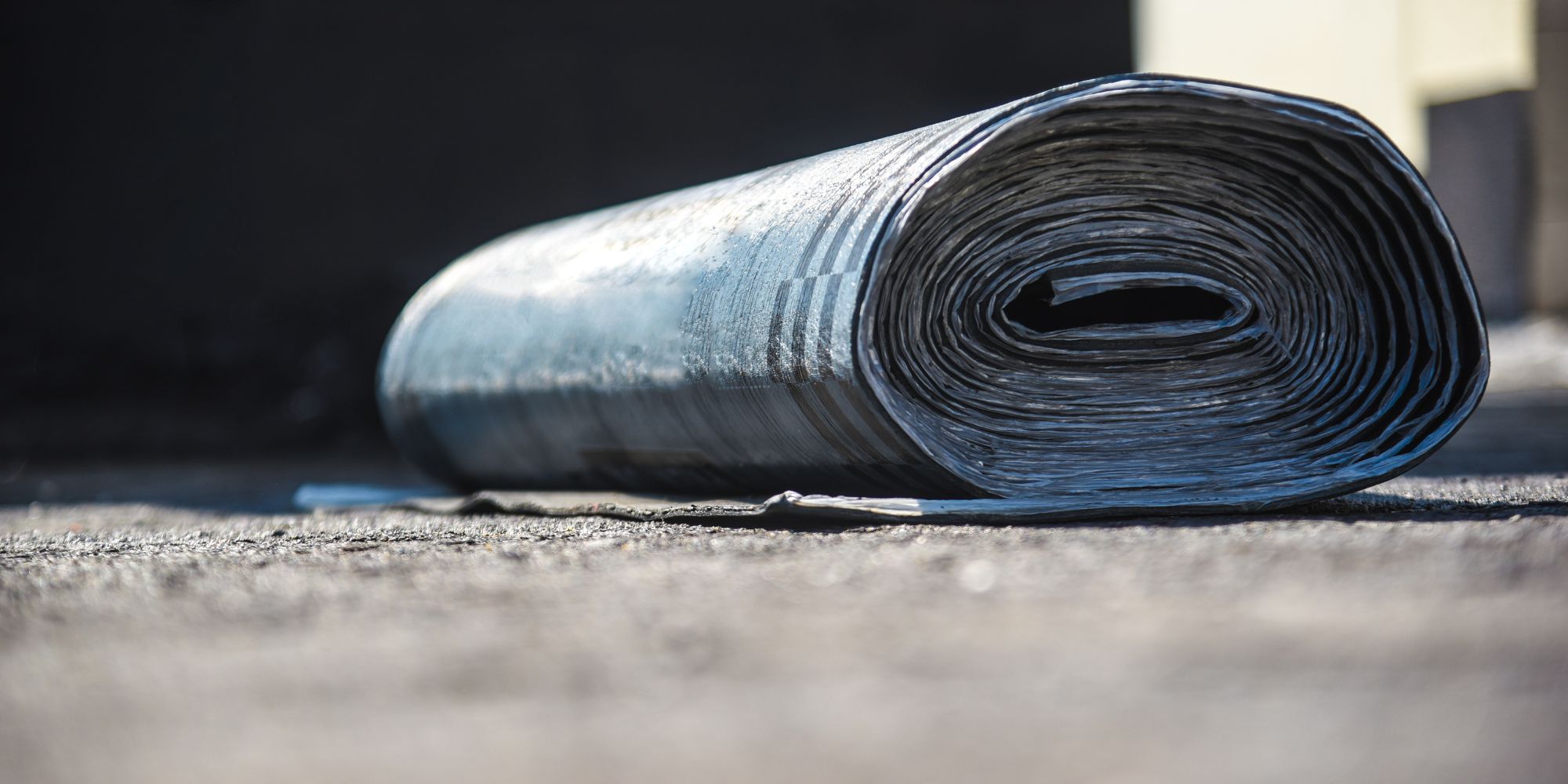Table of Contents
What is asphalt roof insulation?

What is asphalt roof insulation?
Are you thinking of installing tarmac on terrace but not sure where to start? Look no further as this article will serve as your ultimate guide to everything you need to know about asphalt roof insulation.
Asphalt roof insulation is a popular choice among residential and commercial property owners due to its durability and energy saving properties. In this container driver, we'll explore the benefits of asphalt shingle roof insulation, how it works, and the different types available on the market.
We will also dive into the installation process, providing you with valuable information to ensure a successful implementation. Plus, we'll address common concerns and frequently asked questions, equipping you with the knowledge you need to make informed decisions.
Whether you want to improve energy efficiency, reduce heating and cooling costs, or improve the life of your roof, asphalt shingle roof insulation offers a reliable solution. Join us as we navigate the world of asphalt roof insulation and equip you with the tools you need to make the best choice for your property.
So, let's start it journey your way to efficient and sustainable roofing with asphalt roof insulation.
Types of asphalt roof insulation
When it comes to asphalt roof insulation, there are several options available on the market. Understanding the different types can help you make an informed decision based on your specific needs and budget.
Built-in roofs (BUR): This is one of the most common types of asphalt roof insulation. It consists of multiple layers of bitumen and reinforcing fabrics, creating a durable and waterproof membrane. BUR is known for its longevity and ability to withstand extreme weather conditions.
Modified bitumen roofs: Modified bitumen roofing is a popular choice for both residential and commercial properties. It combines the durability of traditional bitumen with additional polymers, making it more flexible and resistant to temperature changes. This type of insulation is often applied in rolls or sheets.
Asphalt roofs with lens: Torch applied bituminous roofing involves heating the bitumen to create a bond with the underlying surface. This method provides a seamless and watertight membrane, ensuring optimal protection against leaks and water damage. Commonly used in flat roof applications.
Each type of asphalt roof insulation has its own advantages and considerations. It is essential to consult with a roofing professional to determine the most appropriate option for your particular project.
Advantages of asphalt roof insulation
Paving offers many advantages that make it a popular choice among homeowners and commercial property owners. Let's explore some of the key benefits:
Energy efficiency: THE roof insulation acts as a barrier, reducing heat transfer between the interior and exterior of the building. This helps maintain a comfortable temperature inside, reducing reliance on heating and cooling systems. As a result, you can enjoy lower energy bills and a more sustainable approach to heating and cooling your property.
Durability: THE roof insulation tarpaulin is known for its exceptional durability and longevity. It can withstand harsh weather conditions, including heavy rain, snow and UV exposure. This makes it a reliable choice for both residential and commercial roofing, providing long-lasting protection against leaks and damage.
Waterproofing: One of the main functions of mroof insulation of tarpaulin is the creation of a waterproof barrier. Multiple layers of tarpaulin and reinforcing fabrics ensure that water does not penetrate the roof, preventing costly water damage and mold growth. This is especially important in areas prone to heavy rainfall or high humidity.
Sound insulation: Except from the thermal insulation, asphalt roof insulation also provides soundproofing benefits. It helps reduce outside noise from traffic, rain or other sources, creating a quieter and more peaceful indoor environment.
Increased roof life: By providing an extra layer of protection, asphalt shingle roof insulation can significantly extend the life of your roof. It protects the underlying materials from the damaging effects of UV rays, temperature fluctuations and natural wear and tear. This can save you money in the long run by reducing the frequency of roof repairs or replacements.
Factors to consider before installing asphalt shingle roof insulation
Before proceeding with the installation of tarmac, there are several factors to consider:
Roof condition: It is essential to assess the condition of your existing roof before installing insulation tarmac. Any existing damage or leakage should be addressed and repaired prior to installation to ensure a solid foundation for the insulation.
Climate: The climate in your area plays an important role in determining the type and thickness of asphalt roof insulation you should choose. For colder climates, a thicker one may be required insulation for the supply optimal thermal efficiency. In warmer climates, a thinner insulation may be sufficient.
Roof slope: The slope of your roof can affect the installation process and the type of asphalt insulation that can be applied. Steeper slopes may require additional precautions and considerations to ensure proper adhesion and water drainage.
Budget: Consider your budget when choosing the type and thickness of asphalt roof insulation. While thicker insulation can provide better thermal performance, it can also come at a higher cost. Find a balance between your desired level of insulation and your budget constraints.
Professional Placement: Asphalt roof insulation should be installed by experienced people professionals to ensure proper implementation and compliance construction of codes. Hiring a reliable roofing contractor with expertise in asphalt insulation is vital to a successful installation.
By considering these factors, you can make informed decisions that align with your specific needs and requirements.
How to install asphalt roof insulation
Proper installation is essential to maximize the benefits and performance of asphalt roof insulation. While it is recommended that you hire a professional roofing contractor for installation, understanding the general process can help you monitor progress and ensure quality workmanship.
Preparation of the roof: Before installing the insulation, the roof surface must be thoroughly cleaned and prepared. Any debris, dirt or loose materials must be removed to create a clean and smooth surface for the insulation to adhere to.
Primer Application: Depending on the type of asphalt roof insulation used, a primer may need to be applied to the roof surface. The primer helps to strengthen adhesion and create a strong bond between the insulation and the roof.
Install the insulation: Asphalt insulation is usually supplied in rolls or sheets. It is carefully rolled or spread over the roof surface, ensuring proper alignment and coverage. The insulation must be firmly fixed to prevent any movement or displacement.
Seal the joints: To create a seamless and watertight membrane, joints between insulating sheets or rolls should be sealed using a suitable bituminous sealant or adhesive. This ensures that water cannot penetrate the roof and cause damage.
Protective layer: Depending on the specific installation requirements and the type of asphalt insulation used, a protective layer may be applied over the insulation. This layer provides additional protection from UV rays, physical damage and weather conditions.
Inspection and maintenance: Once installation is complete, it is important to periodically inspect the roof to ensure that the insulation is intact and functioning as intended. Regular maintenance, such as cleaning up debris and inspecting for signs of damage, can help extend the life of the insulation.
By following these installation steps and working with a professional roofing contractor, you can ensure the successful application of shingle roof insulation to your property.
Maintenance tips for asphalt roof insulation
Proper maintenance is vital to ensure the longevity and performance of your asphalt roof insulation. Here are some basic ones tips which you should keep in mind:
Regular inspections: Schedule regular inspections of your roof to check for any signs of damage, such as cracks, tears or leaks. Early detection can prevent further damage and costly repairs.
Keep the roof clean: Remove any debris, leaves or branches that accumulate on the roof surface. This helps prevent moisture build-up and possible damage to the tarp insulation.
Address repairs in time: If you notice any damage or signs of wear, such as loose seams or cracks, it's important to address them immediately. Neglecting repairs can lead to more damage and compromise the effectiveness of the insulation.
Avoid foot traffic: Minimize foot movement on the roof to prevent unnecessary damage to the insulation. If access to the roof is required, take precautions such as using walkways or planks to distribute the weight evenly.
Clear snow and ice: In colder climates, it is important to clear snow and ice from the roof to prevent excess weight and possible insulation damage. Use proper tools and techniques to avoid damaging the roof surface.
By following these maintenance tips, you can ensure that your asphalt roof insulation remains in optimal condition and continues to provide the benefits you want.
Comparison of asphalt roof insulation with other types of insulation
While asphalt shingle roof insulation offers many advantages, it is important to consider other types insulation to make an informed decision. Here's a comparison of asphalt roof insulation with some commonly used alternatives:
Spray foam insulation: Spray foam insulation is known for its excellent thermal performance and ability to create a seamless and airtight barrier. However, it can be more expensive than asphalt roof insulation and may require professional installation.
Fiberglass insulation: Fiberglass insulation is a popular choice due to its affordability and ease of installation. However, it may not provide the same level of strength and waterproofing as asphalt insulation.
Cellulose insulation: Cellulose insulation is made from recycled materials and offers good thermal performance. However, it may not be as effective in providing moisture resistance and waterproofing compared to asphalt insulation.
When comparing insulation options, consider factors such as cost, durability, energy efficiency and the specific requirements of your property. Consult with a roofing professional to determine the best option for your needs.
Is asphalt roof insulation right for you?
Asphalt roof insulation offers a number of benefits, including energy efficiency, durability, waterproofing, sound insulation and increased roof life. By understanding the different types, installation process, and maintenance requirements, you can make an informed decision about whether asphalt shingles is the right choice for your property.
Remember to consider factors such as climate, roof condition and budget before proceeding with the installation. Hiring a professional roofing contractor is recommended to ensure proper installation and compliance with building codes.
Investing in asphalt roof insulation can provide long-term savings, improved comfort and increased property value. Take the first step towards efficient and sustainable roofing by exploring the world of asphalt roof insulation and choosing the best option for your needs. Your roof and wallet will thank you for it.
So, are you ready to start your journey to efficient and sustainable roofing with asphalt shingle roof insulation? Take the leap and enjoy the benefits it has to offer.

Fill it in
Form